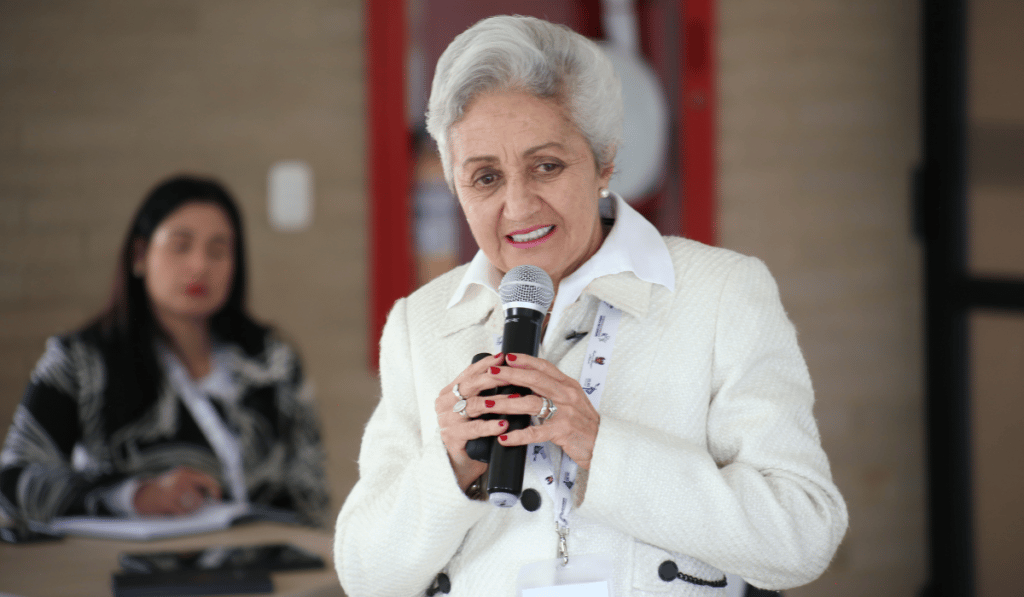SÃO PAULO, Brazil – Delegates from several countries gathered last week in Colombia for the second encounter of the Latin American and Caribbean network of culture of care and abuse prevention.
The first was in Chile in November of 2023. Although there has been progress in several parts of the world but the region’s Church still has a long road ahead.
“We could see during the meeting that the Latin American Church is aware of the needs concerning the implementation of a culture of care. From an institutional point of view, many episcopal conferences have already formed special committees or opened offices to deal with the theme,” lawyer Ilva Myriam Hoyos, who heads the Colombian abuse prevention commission, told Crux.
However, there are significant problems to be tackled in the region, with some conferences still lacking a basic institutional structure in order to deal with the current challenges, Hoyos said.
The first meeting last year was hosted by the National Abuse Prevention Council of the Bishops’ Conference of Chile. Chile’s Church has dealt with a number of high-profile abuse scandals since 2010, which led all bishops to present their resignation to Pope Francis in 2018. That experience provoked profound transformations in the way Church leadership deals with abuse accusations.
“A bishop and an expert in abuse from each conference were invited to take part in the meeting in Santiago. It was necessary to identify who were the people in charge in each country in order to know how each conference was dealing with that subject,” Hoyos recalled.
The network was formally established, and the group has been working on different initiatives since then, including the creation of a website and the promotion of a webinar. Although it has the participation of clergy members, many of its key leaders are lay people – especially women.
In several national committees, members are experts in human rights or child abuse and come from fields like Law and Psychology. Working side by side with bishops and priests, those lay women have been bringing to the discussion a distinct perspective.
“The Latin American bishops are aware of the responsibilities they assumed, although not all of them are on the same level. But there’s a broad commitment from the episcopate and from laity,” Hoyos said, adding that the work of the commissions has been marked by synodality.
Fifty-two people representing 17 countries took part in the meeting on Sept. 3-5 in Bogotá. The delegates from Venezuela and Nicaragua had to attend the event virtually, due to the political turmoil in their nations.
All participants could present the current situation in their particular churches and guest speakers dealt with themes like transparency, communications, and dealing with the victims.
“The theme of reparations to the victims seems to be one of the most challenging ones in Latin America. We’re making an effort to identify best practices in the region in order to inspire the action of all committees,” Hoyos said.
Colombian-born Bishop Luis Manuel Ali, secretary of the pontifical commission for the protection of minors, also attended the event. In 2023, he participated in the Santiago encounter as a Colombian delegate. In Bogota, he explained to the participants how they should adopt the Vatican guidelines on abuse in order to prevent it and to implement protocols for helping of the victims.
“We presented suggestions on how protocols should be elaborated and discussed the implementation of the national commissions or offices of abuse prevention. One of our goals was precisely to share ideas with all conferences,” Hoyos said.
The participants said the next meeting will be in the Dominican Republic. Virtual conferences will be promoted until then, dealing with subjects related to formation and training of the commissions’ members.
The network also noticed that the Central American nations have been facing more difficulties in making progress in the installation of an institutional structure to deal with abuse prevention. The group will try to focus on those nations’ needs.
“We’ll also focus on the formation of leaders, which we still lack in the region,” Hoyos explained.
She said that dealing with such a complex subject as abuse requires more than guidelines and protocols, although they’re undeniably important.
“We need to boost new kinds of relationships in the Church, in which dignity and respect are the core values,” Hoyos said.










